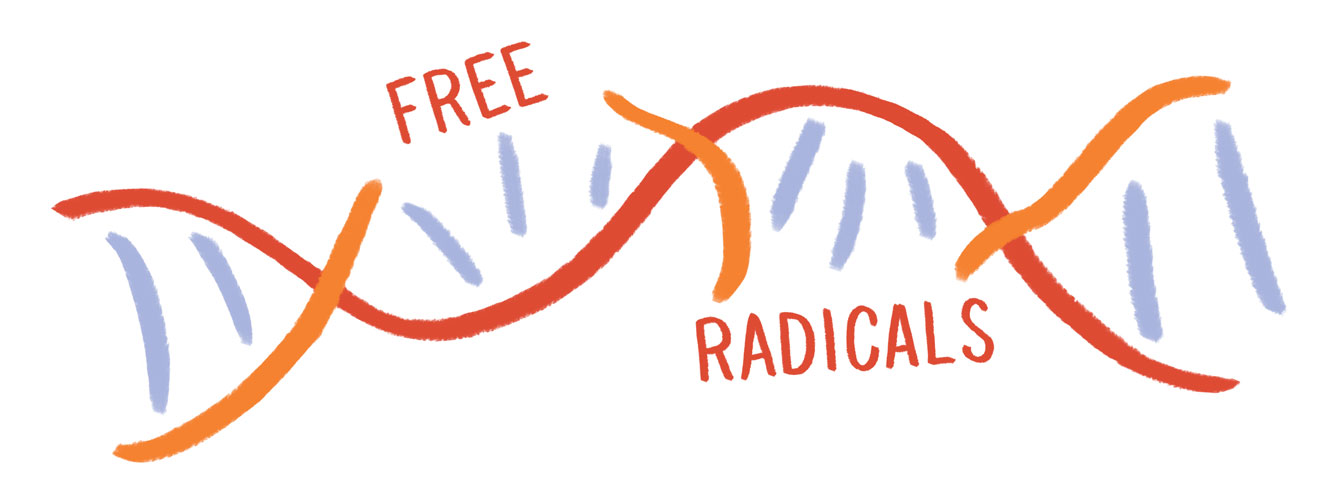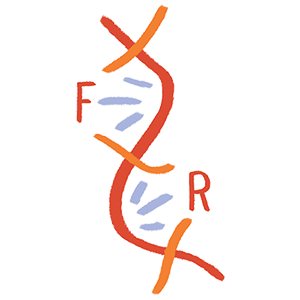
An image with a university sitting atop a hill and a pit of money passing along resources to a neighboring community at the bottom of the hill. Artwork by Mariah-Rose Marie M .
At the end of April 2019 the Free Radicals East Coast chapter convened in Providence, Rhode Island to host a series of workshops, the Unlearning STEAM Symposium and meetups dedicated to learning about the role of universities in STEAMwashing. STEAMwashing is the practice of institutions (such as corporations, universities, government) gentrifying an impoverished area with developments geared specifically towards science, technology, arts, and other fields that are framed as necessary for the greater good. To develop this workshop, we tailored Free Radicals’ previous sciencewashing workshop and materials to address the dynamics specific to the Providence community, where private universities play a key role in policing while increasing unequal access to education and knowledge economy jobs.
Over the course of the Unlearning STEAM Symposium we both presented to attendees at the Unlearning STEAM symposium at the Rhode Island School of Design and presented to members of Direct Action for Rights and Equality (DARE), a community organization that fights against gentrification and criminalization. We wanted to write about the experience here for folks similar positions to ours (largely white and Asian scientists with access to academic institutions and resources) who are trying to do aligned work to share our philosophy on workshops, redistribution of resources, community building as well as how we put our values into practice. This is a case study and there are many things we would have changed to better meet our goals, but we are overall proud of the events and the connections we built with other organizers.
First, how did this weekend come about? We received an invitation from RISD STEAM and Global Initiative to present on equity and accountability in STEAM. This invitation gave us the opportunity to follow through on our dual commitment to pushing change within institutions while redirecting resources to build community power. We aim to use our access to institutional resources to support the work done by frontline communities. We have made a commitment as a chapter that for every institutional presentation we give, we will do a workshop in the same city with a frontline group and donate a portion of the honorarium we receive to that group. That way, we can use both our access to research tools and honorarium money to further community objectives.
Universities have enormous power, both economically and socially. In Providence, where 43.9% of taxable real estate is held by non-profits, mostly universities and hospitals, the city landscape is shaped by their plans and resources. RISD is not primarily a local institution, it has a global reach and brings people from around the world. There are many communities associated with RISD, and any other university. These may be, donors, faculty, staff, students, neighbors, accreditation boards, politicians. RISD honors their accountability to each of these communities in different ways, often engaging the concerns and needs of local residents, who are rarely present on RISD’s campus as faculty or students, in superficial ways.
Given that universities and “innovation” or “place-making” initiatives such as STEAM pushed by universities is a key contributor to gentrification, we thought that focusing our presentation on Providence and redirecting our resources towards Direct Action for Rights and Equality (DARE) made sense. DARE is a frontline community fighting against eviction, housing insecurity, and racialized policing in Providence. Their Tenant and Homeowner Association (THA) (https://www.daretowin.org/current-campaigns/tenant-and-homeowner-association/) group organizes to keep families facing foreclosure or eviction in their homes while fighting to force banks to face accountability for the economic crisis they created. As large landowners, universities are often complicit in or even drivers of displacement.
First, we contacted DARE to make sure they were interested in participating in the symposium. Our local networks and relationships made getting in touch with DARE easy since, one of the local chapter members already had community connection to DARE. DARE members expressed excitement for the workshop, and asked for us as scientists to also include discussion of mental health and medical treatment. We also planned to provide food and cash stipends for attendees at the workshop. Our budget can be found here for transparency.
A quick point: we chose to give cash because this allows people more freedom to use the money however they want. Institutions often give gift cards for participants who volunteer in research studies or attend other events they put on, however gift cards force you to spend money, have fees, and they also always end up having a small balance that is very inconvenient to actually spend down. In this case, RISD also wouldn’t provide any money, food, or gift cards for an event that would not be RISD affiliated, so we chose to just withdraw cash from our own accounts. We were also able to do this because we have savings, as the honorarium was not sent to us until a few months later.
We put in a lot of time and effort on researching our presentation for the RISD symposium, in addition to doing a lot of the logistical and administrative work to make these events happen because of a lack of transparency about resources available from the institution through the student groups that invited us. We are proud of the resulting presentation and know that it’s useful to ongoing work in Providence and other places. However, given limited time available in our volunteer organization, it’s important to acknowledge that this meant we were compromising on other important work. The East Coast chapter didn’t take on new projects while preparing for the symposium, leaving us in a lull in our work over the summer. And to be direct, we did not prepare to have an in depth conversation with DARE THA about mental health and medications as they had requested. Our workshop at DARE was much more relevant to the focus of the symposium at RISD than to the needs that the community expressed. We could have focused at least equal effort on both asks or even requested funding for the research that we did for the RISD organization to ensure that our work was properly resourced.
Nevertheless, the DARE workshop was a success, with lots of laughter, discussion, and engagement. THA wanted us to send the presentation to them, as well as send them our research so that they could use it in their campaigns. They also wanted to know ways to get more involved in our work. We later connected with one of the members and they plan to come to our next Providence event and also want to discuss science education curriculums.
At the Unlearning STEAM symposium at RISD, we presented alongside two Providence community leaders, Sherrie Anne Andre and Monica Huertas. They spoke about their work and the barriers they have faced working within and alongside institutions. Monica is a community leader who discussed her community’s current struggle against a liquified natural gas export terminal, also known as the No LNG campaign. She discussed her community’s strategies and barriers in navigating the institutional processes to fight for the health of their community. Sherrie is a co-founder of FANG, a direct action capacity building organization that is currently organizing to #ShutDownICE in RI and MA. They seamlessly wove lessons on solidarity and building power into their presentation on art and beautiful direct actions. Sherrie challenged us to think about who our community is and what our local issues are. We then each brainstormed a single action to address a local issue.
Sherrie and Monica are both generous teachers. We learned a lot from Sherrie and Monica both at the symposium and through other organizing. Throughout the weekend, we returned to three key lessons to leverage institutional resources and build strong community relationships. The first and frankly most important is a framework shift: redirecting resources from institutions should not be done through a charity mindset, but through an accomplice and mutual power-building mindset. Be transparent with your resources and cater them towards what the community groups ask of you, not what you think they will want. This includes food, presentations, cash vs gift cards, etc.
The second is to make a commitment to build a relationship so that you can leverage resources effectively. Once you start building community, have commitment and follow through on that. As Sherrie said in their presentation, it hurts more to have volunteers show up and then disappear in a critical time than to not have them show up at all. This is also how you begin to understand how to distribute resources based on community wants.
The third is to get creative once you know what the community wants. If the institution doesn’t want to provide funding for an event, secure more funding for yourself and give it away. If they don’t want to provide food, overorder catering and give it away. If local folks are trying to meet with a specific community organization from elsewhere in order to share knowledge, set up a symposium for them at your institution so that they can travel locally and even get paid while getting their actual power building work done. Or set up a research trip to a destination and bring a community member with you. These are just a few examples.
This weekend underscored those lessons for us, as well as the importance of prioritizing solidarity and building power. It’s why we were even able to have a weekend like this to begin with. We hope our post can serve as a launching point for other collectives in positions of institutional access and power considering ways to redistribute.







